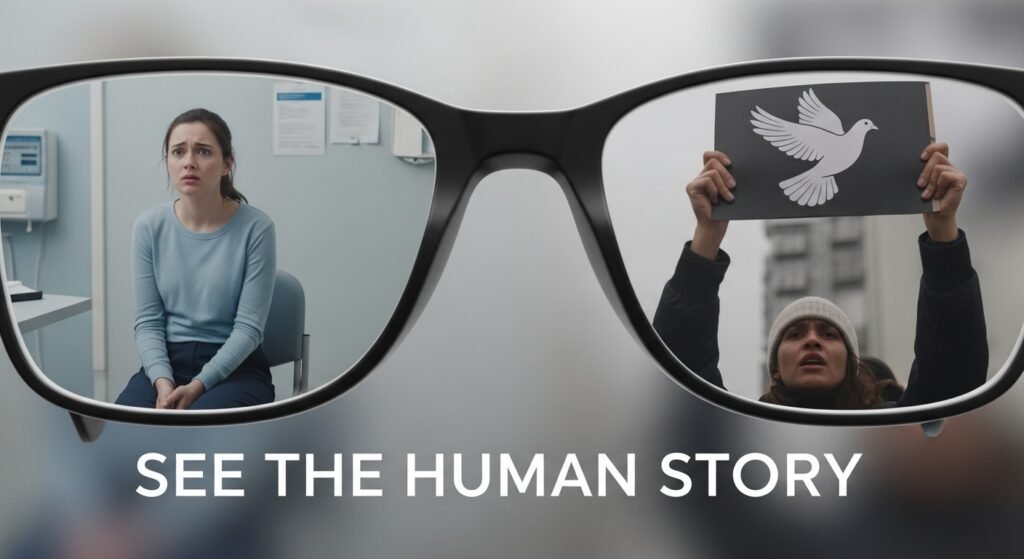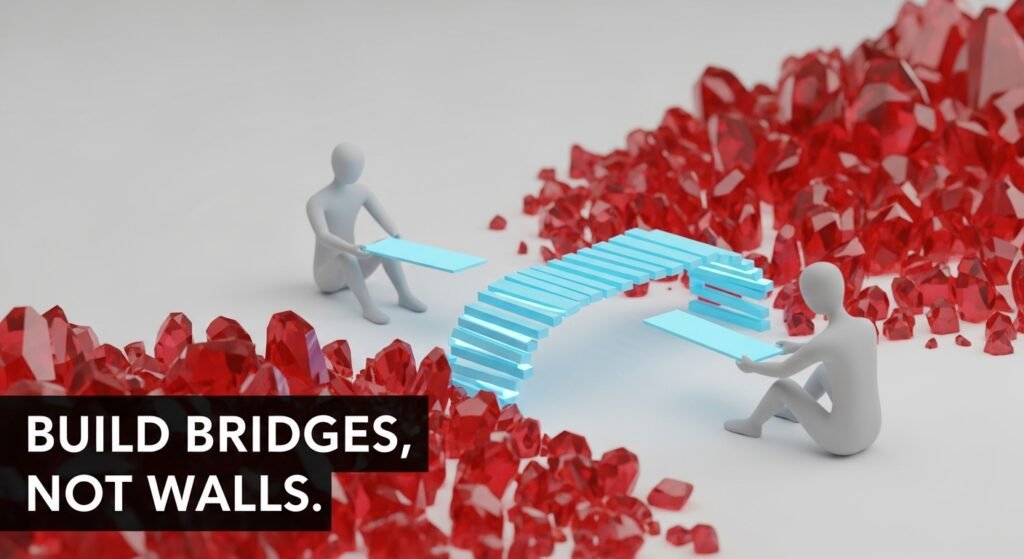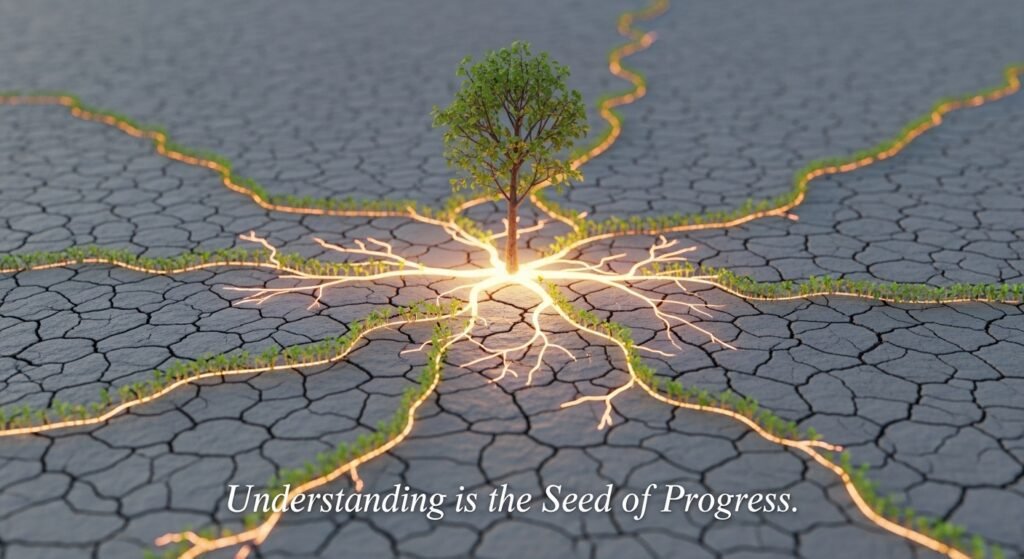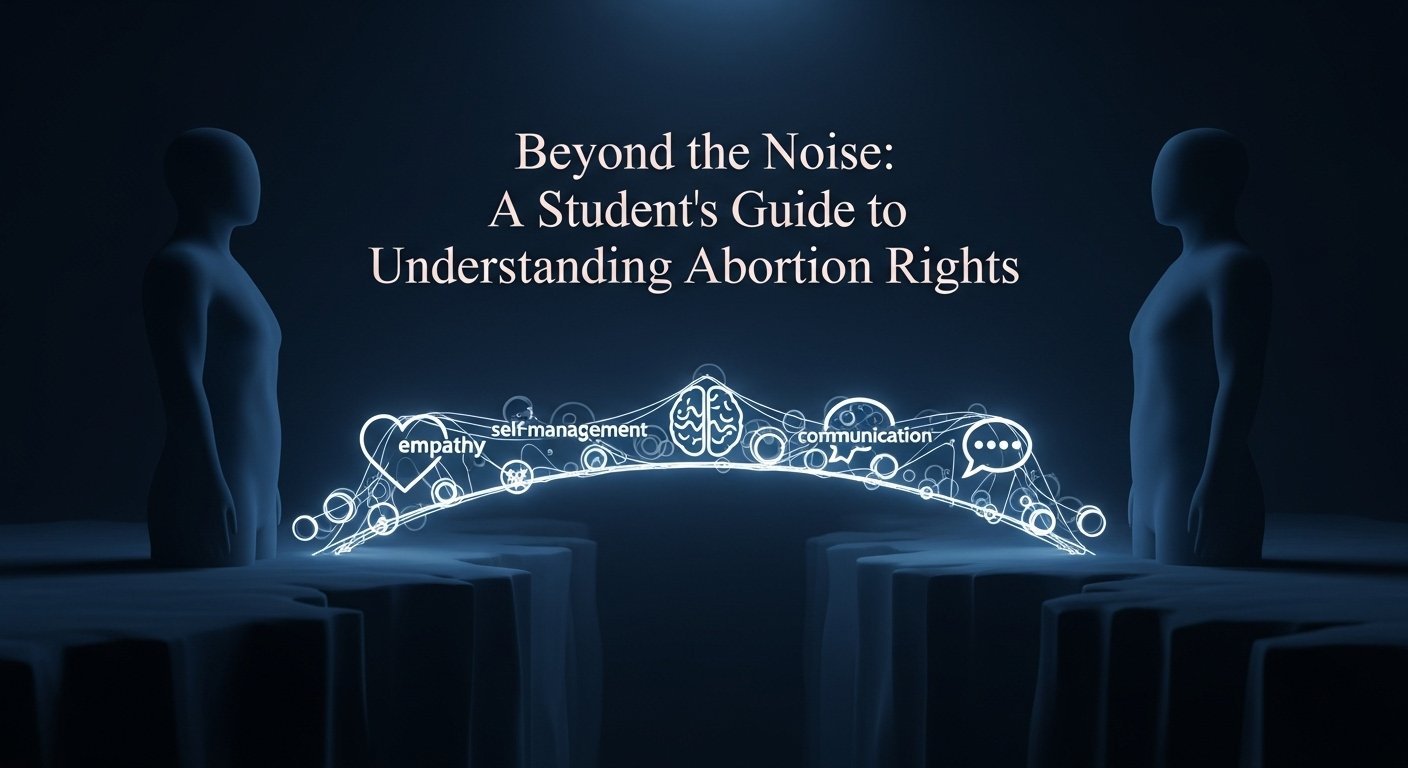Beyond the Noise: A Student’s Guide to Understanding Abortion Rights Through a New Lens
It’s a scene we’ve all witnessed, especially as students navigating the charged atmosphere of social media and campus life. A post about abortion rights appears, and instantly, the comments section devolves into a battlefield. Shouted slogans, personal attacks, and absolute certainty from all sides. It’s overwhelming, and honestly, it’s exhausting. For a long time, I felt like I had to either pick a side and arm myself for battle or just tune it all out completely. But what if there’s a third option? What if we could approach this deeply personal and complex topic not with anger, but with empathy? Not with slogans, but with skills? This is where I discovered the power of social-emotional learning.
For many of us, SEL is something we might have heard about in a high school health class—a framework for managing emotions and building healthy relationships. But I’ve come to realize it’s one of the most powerful tools we have for navigating the most divisive issues of our time, including abortion rights. Applying the principles of social-emotional learning doesn’t force you to change your mind, but it does challenge you to open it. It provides a roadmap to move beyond the political noise and see the human beings at the heart of the debate, helping students like us find knowledge and empathy in a world that often encourages the opposite.
What Exactly is Social-Emotional Learning (and Why Does It Matter Here)?
Before we dive deep, let’s get on the same page. Social-emotional learning, or SEL, is a framework that helps people of all ages better understand their emotions, feel and show empathy for others, establish and maintain positive relationships, and make responsible decisions. The leading authority on this, the Collaborative for Academic, Social, and Emotional Learning (CASEL), breaks it down into five core competencies:
- Self-Awareness: Knowing your own emotions, values, and biases.
- Self-Management: Regulating your emotions and behaviors.
- Social Awareness: Understanding and empathizing with others from diverse backgrounds.
- Relationship Skills: Building and maintaining healthy relationships through clear communication and cooperation.
- Responsible Decision-Making: Making caring and constructive choices about personal behavior and social interactions.
At first glance, this might seem like a toolkit for playground disputes, not for a national debate on bodily autonomy and human life. But the truth is, the reason conversations about abortion get so toxic is precisely because we fail to apply these core human skills. We let our emotional reactions hijack our ability to listen, and we forget that behind every statistic is a human story. A robust social-emotional learning practice is our best defense against this.
Best Remote Internship Programs in 2025
Applying the 5 Pillars of SEL to the Abortion Debate
Let’s break down how each of these five competencies can serve as a guide for us, as students, to understand the abortion rights debate with more depth and less vitriol.

1. Self-Awareness: Checking Your Own Emotional Temperature
The first step in any difficult conversation is to look inward. Before you even type a comment or join a debate, the SEL approach asks you to pause and reflect.
- What are my immediate emotions? When I see a headline about abortion, do I feel anger? Fear? Sadness? Righteousness? Naming the emotion is the first step to understanding its origin.
- Where do my beliefs come from? Were they shaped by my family, my faith, my personal experiences, or my community? Recognizing the source of our values helps us see them as part of our story, not as universal, objective truths.
- What are my biases? Do I automatically dismiss someone who uses the term “pro-life” or “pro-choice”? Do I make assumptions about their intelligence, compassion, or motivations? Being honest about our own biases is crucial for genuine dialogue.
For me, practicing this self-awareness was a game-changer. I realized that a lot of my initial anger in these debates came from a place of fear—fear for the rights and safety of people I care about. Understanding that allowed me to articulate my position from a place of concern rather than a place of aggression. This is the foundation of social-emotional learning: knowing yourself first.
2. Self-Management: From Reacting to Responding
Once you’re aware of your emotional triggers, the next step is managing them. This is arguably the hardest part in our instant-reaction digital world. Self-management isn’t about suppressing your feelings; it’s about choosing a constructive response instead of an impulsive reaction.
Imagine you’re in a class discussion and someone says something about abortion that you find deeply offensive. The reactive response is to lash out, interrupt, or shut down. The SEL-guided response, however, looks different:
- Take a breath. It sounds cliché, but a simple pause can be the difference between a productive comment and a destructive one.
- Focus on the goal. Is your goal to “win” the argument, or is it to understand and be understood? Shifting your goal from victory to connection changes everything.
- Choose your words carefully. Instead of saying, “That’s a stupid thing to say,” you might say, “I see that differently. Can I explain my perspective?”
Self-management is the skill that keeps the conversation going. It’s what allows for the possibility of mutual understanding, even amidst profound disagreement. It’s an active, ongoing practice of social-emotional learning.

3. Social Awareness: Walking a Mile in Someone Else’s Shoes
This is the heart of it all: empathy. Social awareness is the ability to genuinely try to understand the perspectives and feelings of others. In the abortion debate, this means moving beyond abstract arguments and considering the lived realities behind them.
To do this, we have to engage with stories, not just slogans.
- For the person considering an abortion: Can we imagine the complex web of factors influencing their decision? Research from the Guttmacher Institute shows that reasons are often multifaceted, involving financial stability, health concerns, existing family responsibilities, and personal aspirations. Empathy means acknowledging the immense weight of this decision, regardless of where you stand on the issue.
- For the person who believes abortion is morally wrong: Can we understand that for many, this belief comes from a place of deep-seated compassion for what they view as an unborn life? Their stance is often rooted in profound moral, ethical, or religious convictions about protecting the vulnerable. Dismissing this as simply “wanting to control women” is a failure of social awareness.
This practice of empathy doesn’t require you to agree. You can hold onto your own convictions while still acknowledging the humanity and validity of someone else’s perspective. This dual-minded approach is a hallmark of mature social-emotional learning.

4. Relationship Skills: The Art of Disagreeing Better
Armed with self-awareness, self-management, and social awareness, you’re now equipped for the actual conversation. Relationship skills are about putting that internal work into external practice. This is where we learn to disagree without being disagreeable.
| Destructive Communication | Constructive Communication (Using SEL) |
| Accusations: “You just don’t care about women.” | “I” Statements: “I feel concerned when I hear that because my focus is on women’s health and safety.” |
| Generalizations: “All pro-lifers are religious extremists.” | Specific Questions: “Can you help me understand the specific values that inform your view?” |
| Interrupting: Cutting someone off to make a point. | Active Listening: “So what I hear you saying is that you believe life begins at conception. Is that right?” |
| Winning: The goal is to prove the other person wrong. | Understanding: The goal is to comprehend their perspective, even if you don’t adopt it. |
Export to Sheets
As students, we are in a unique environment—the university—that is supposed to be a crucible for ideas. But that ideal only works if we have the skills to engage respectfully. By practicing these relationship skills, we can make our campuses places of genuine learning, not just echo chambers.
5. Responsible Decision-Making: Navigating the Grey
Finally, we arrive at responsible decision-making. In the context of the abortion debate, this isn’t about deciding for others. Instead, it’s about appreciating the profound ethical complexity of the issue and advocating for a society that approaches it with care and wisdom.
A responsible decision-making framework, informed by social-emotional learning, would encourage us to ask bigger questions:
- What are the societal consequences of various abortion policies? How do they impact maternal mortality, economic inequality, and child welfare?
- How can we best support people facing unwanted pregnancies, regardless of their final decision? This includes access to healthcare, childcare, and financial support.
- How can we reduce the number of unwanted pregnancies in the first place through comprehensive sex education and accessible contraception?
- What is the most ethical and compassionate way to balance deeply held, conflicting values in a pluralistic society?
This pillar of SEL moves us from a simple “for or against” binary into a more nuanced and holistic understanding of the issue. It recognizes that responsible choices require looking at the entire system, not just a single act.
Best Remote Internship Programs in 2025
My Own Journey: From a Debater to a Listener
I have to be honest: this isn’t just a theoretical exercise for me. I used to be a fierce debater, armed with statistics and talking points, ready to dismantle any opposing argument. I thought I was being a good advocate, but I was really just talking at people. I wasn’t changing minds; I was just hardening divisions.
The shift happened during a campus event when I ended up in a small group discussion with a student who was passionately pro-life. My initial instinct was to launch into my prepared arguments. But I decided to try something different. I decided to just listen. I asked her to tell me about why she felt the way she did.
She told me about her family’s experience with adoption and her deeply held belief that every life has inherent purpose. I didn’t agree with her conclusions, but for the first time, I felt the human conviction behind her stance. I shared my own fears about what restrictive laws could mean for people’s health and futures. We didn’t leave that conversation in agreement. But we did leave it with a quiet, mutual respect. We saw each other not as enemies, but as two people trying to make sense of a profoundly difficult issue. That experience was social-emotional learning in action, and it changed everything for me.

Conclusion: The Goal Isn’t Agreement, It’s Understanding
Applying a social-emotional learning framework to the abortion rights debate won’t magically solve it. It won’t erase the deep divisions that exist. But it does offer us, as the next generation of leaders, thinkers, and citizens, a better way forward.
It teaches us that empathy is not endorsement. It shows us that we can hold our convictions with passion while still making space for the humanity of those who disagree. It gives us the tools to transform toxic shouting matches into opportunities for genuine human connection. The goal of social-emotional learning isn’t to create a world where everyone agrees, but to create a world where we can disagree with respect, compassion, and a shared desire for a better, more understanding future.
How do you navigate difficult conversations like this one? Share your own strategies for fostering empathy and understanding in the comments below.



